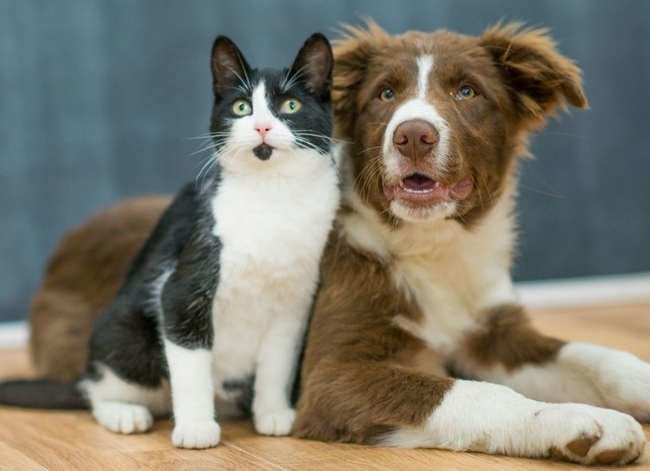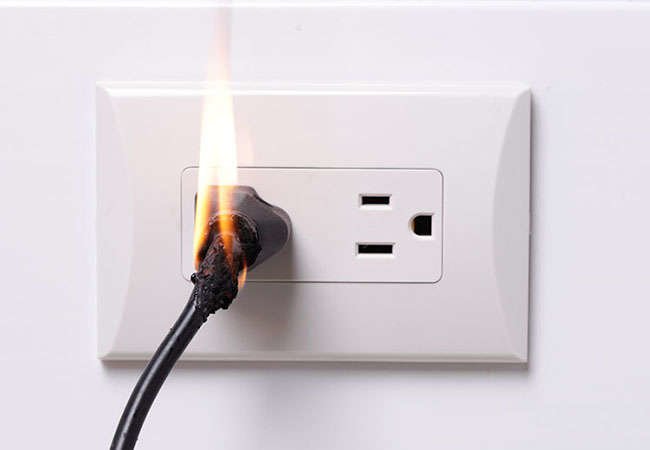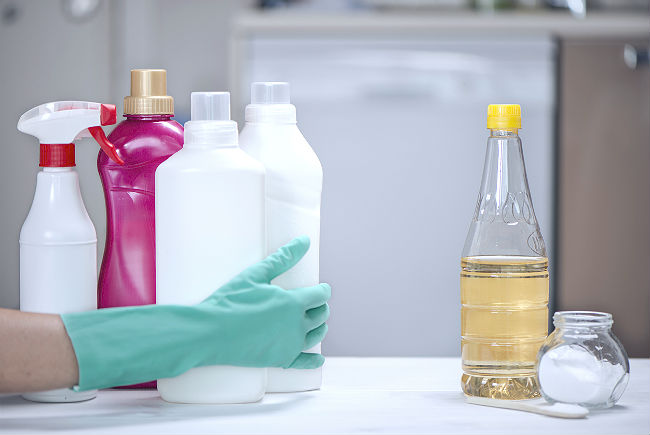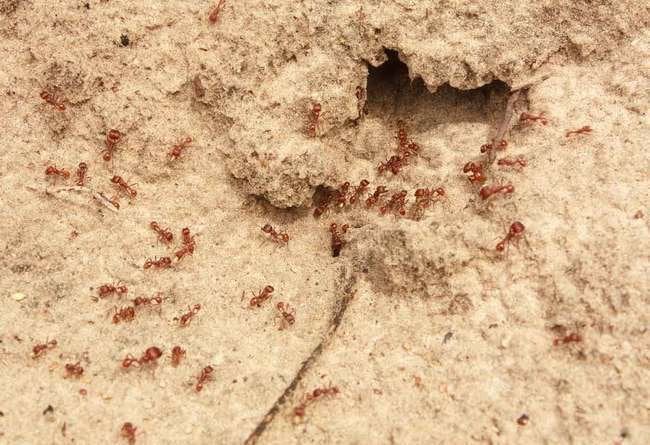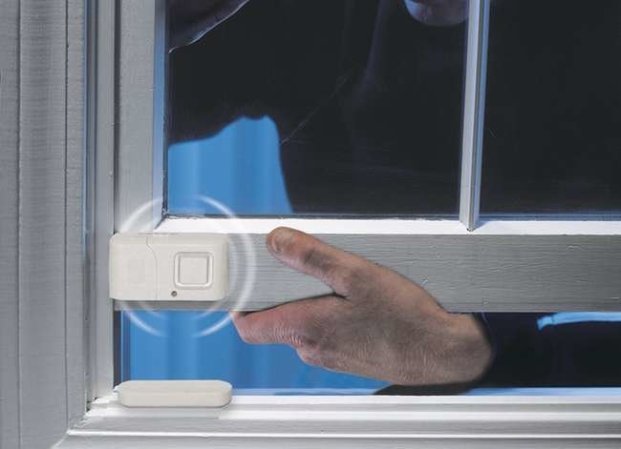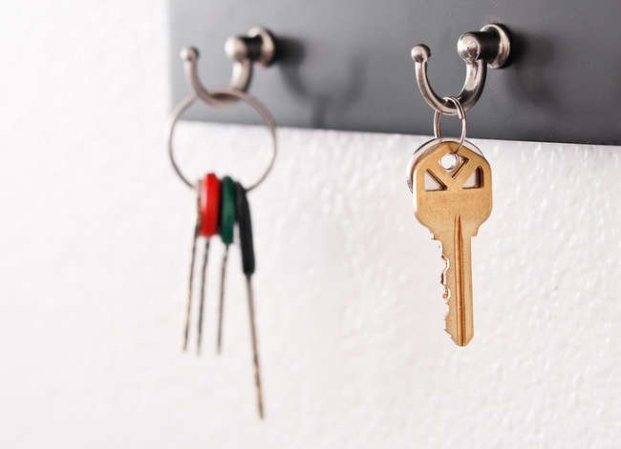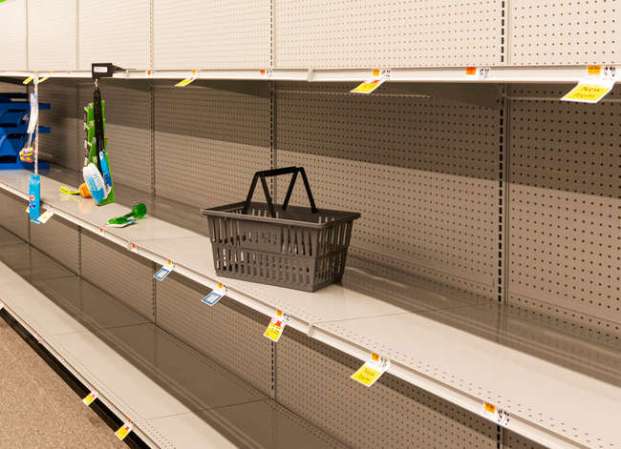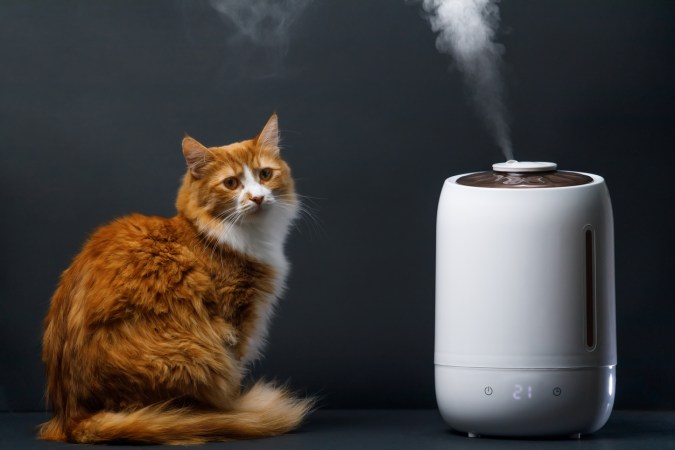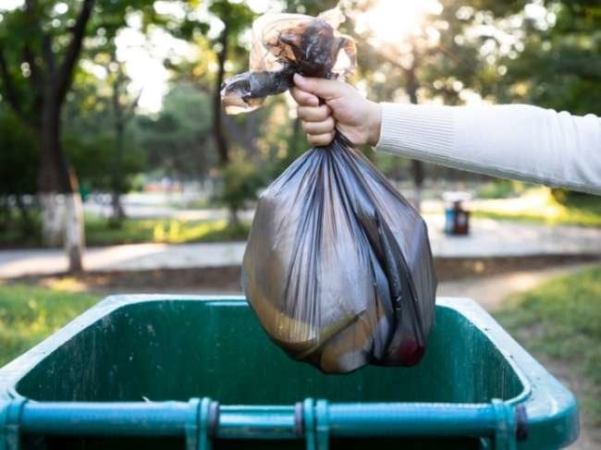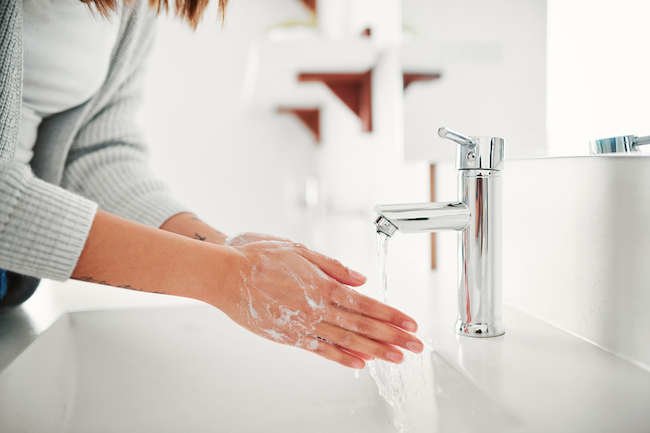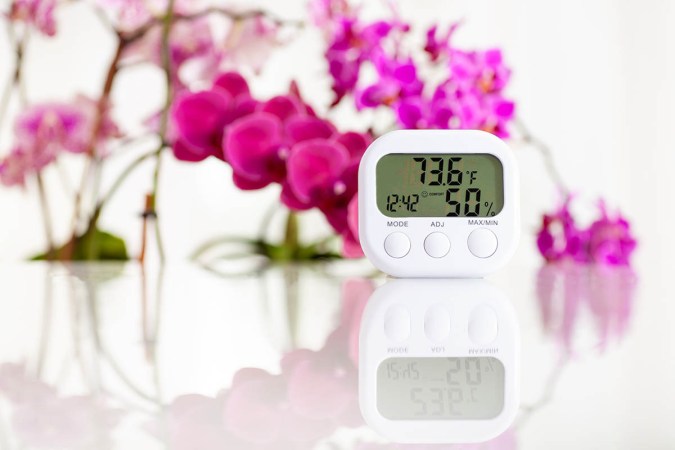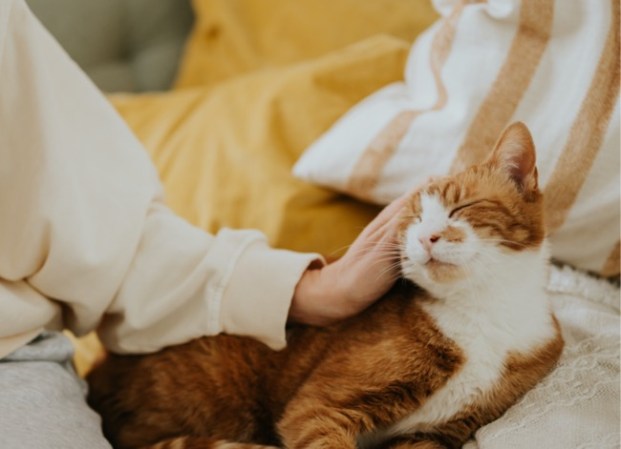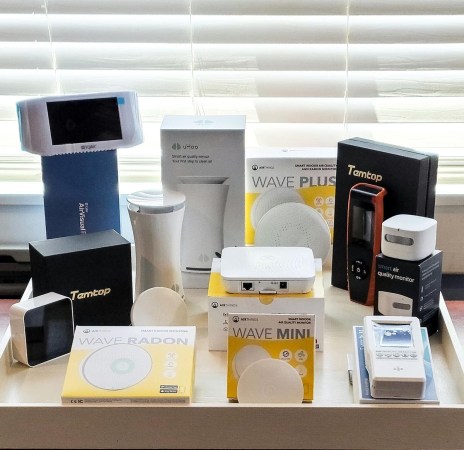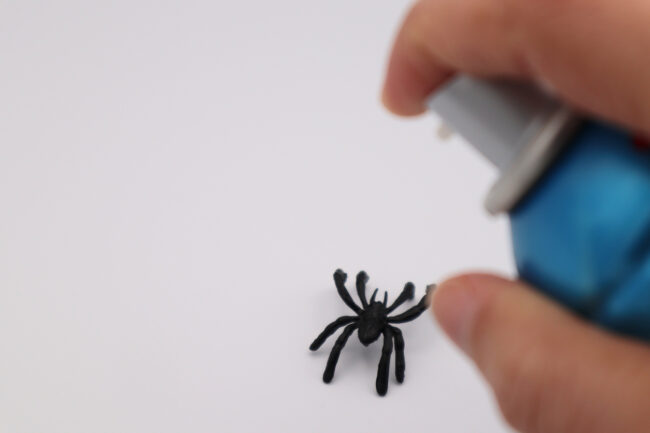We may earn revenue from the products available on this page and participate in affiliate programs. Learn More ›
Essential Oils
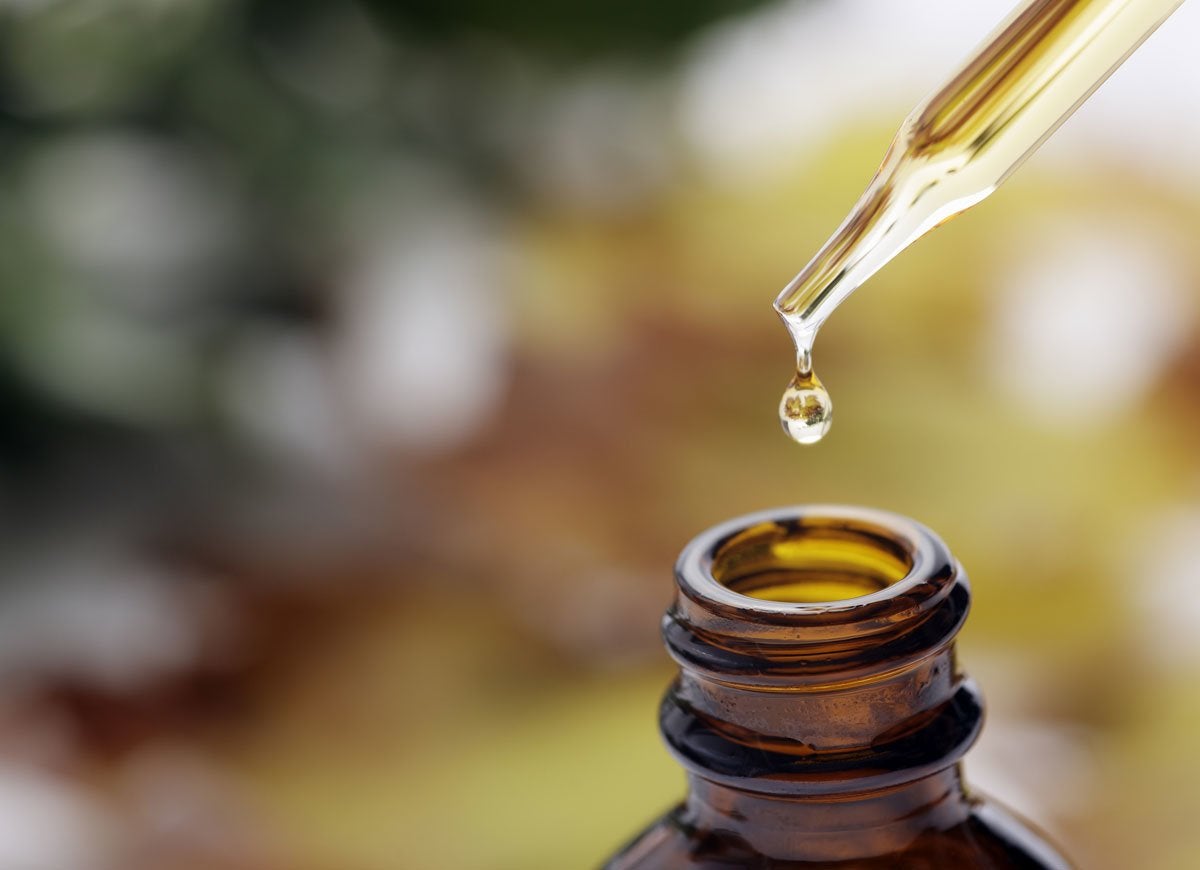
Cat owners should never purchase soaps, cleansers, or other products containing essential oils. If ingested, the aromatic compounds can damage a feline’s intestines, central nervous system, respiratory system, and liver.
Fabric Softener Sheets
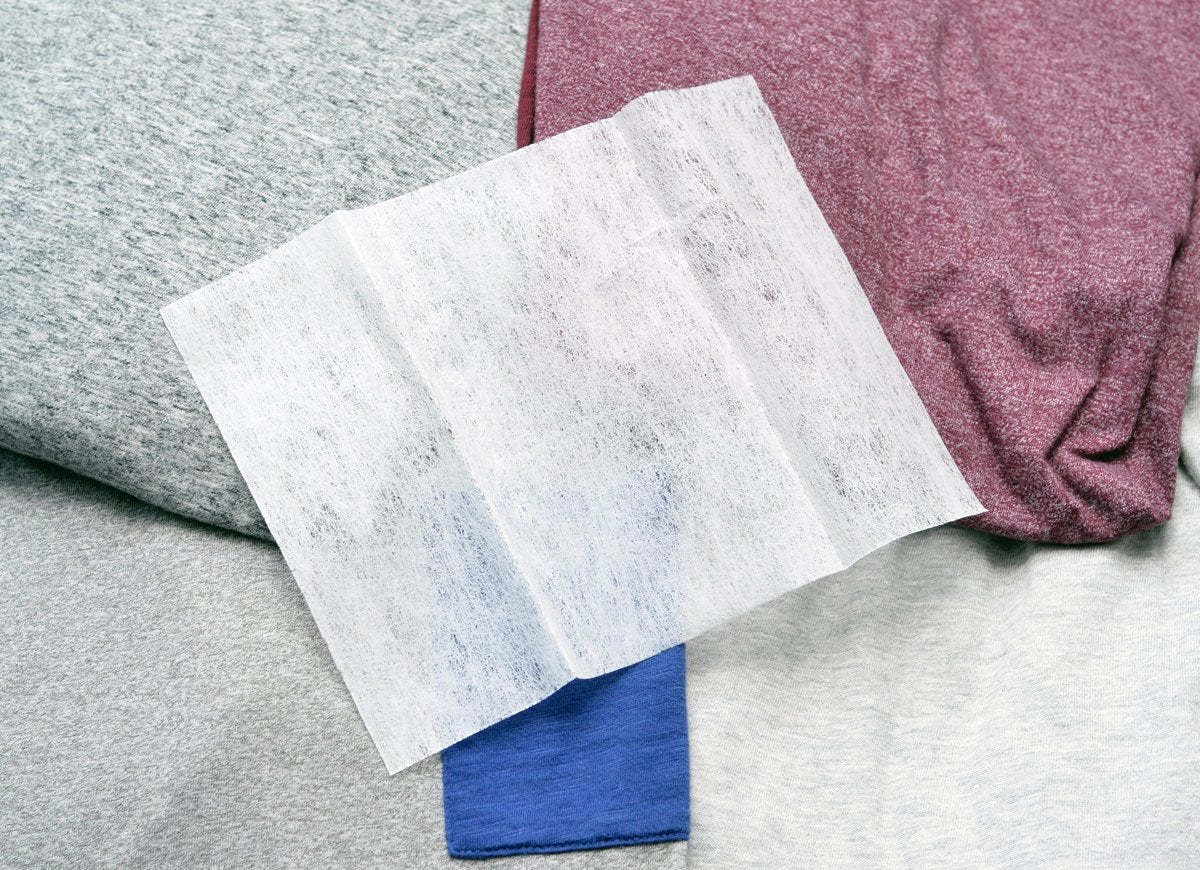
If your pet chews on fabric softener sheets, it will be exposed to cationic detergents, which are known to cause oral ulcers, intestinal upset, and fever. Keep the sheets away from pets or choose safer products, such as dryer cloths and balls, instead.
Grout
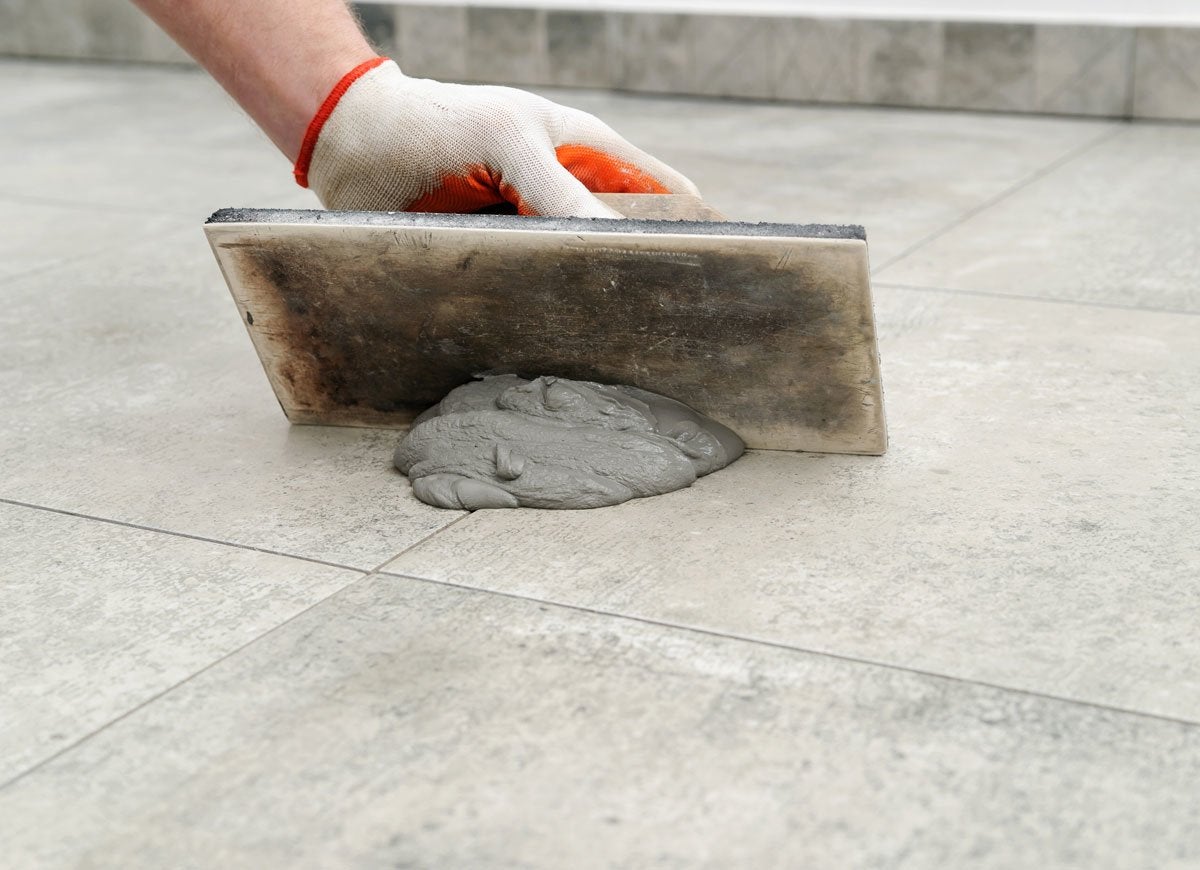
While dried grout will only cause mild stomach upset if ingested, uncured alkaline products are poisonous for pets. Always inspect the ingredient list before using a product, and keep home renovation supplies away from cats, dogs, and other animals.
Related: The Home Improvement Projects to Tackle Each Month in 2018
Bleach
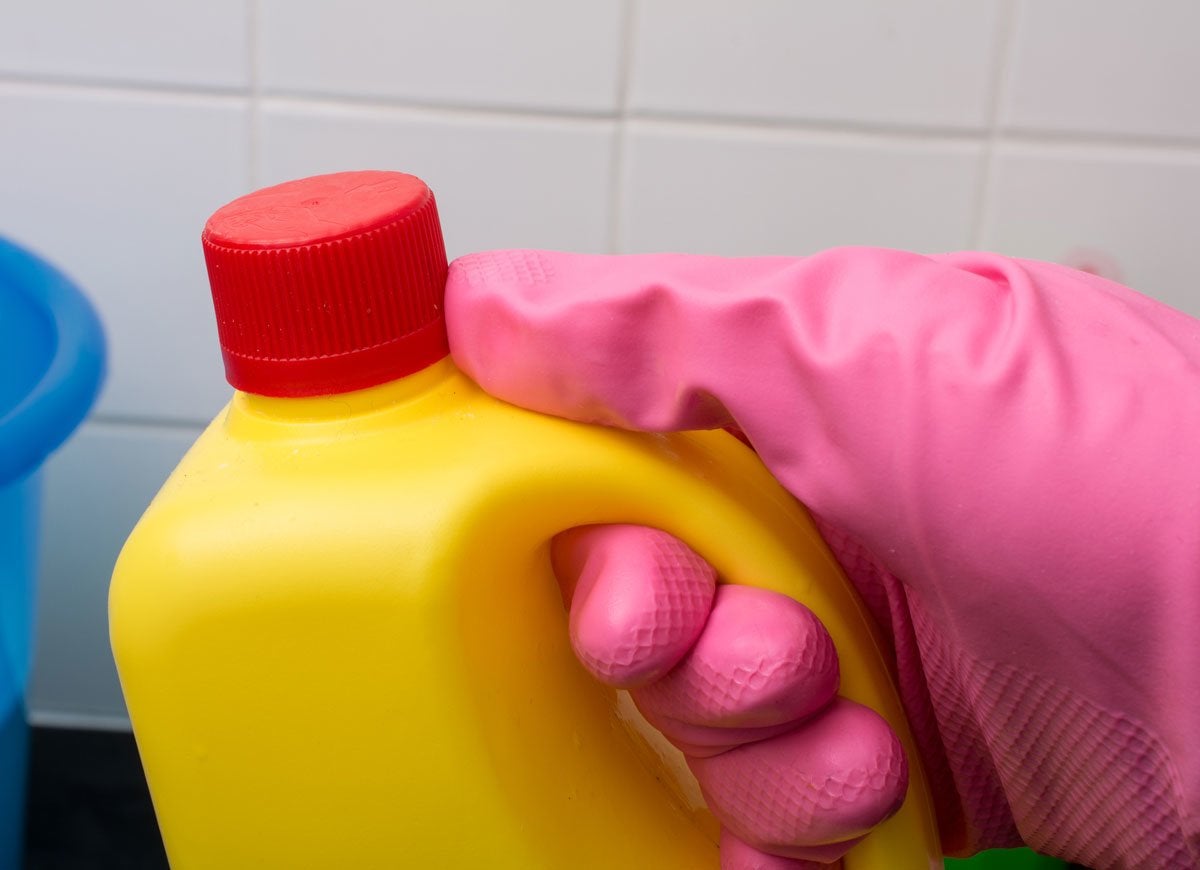
According to the American Society for the Prevention of Cruelty to Animals, cleaning your pet’s cage or play area with bleach will not cause harm, as long as you thoroughly wash and dry it afterward. But homeowners should think twice before using the corrosive substance with pets nearby, since it can damage eyes, irritate skin, and cause a poisonous reaction if ingested.
Cleaning Products
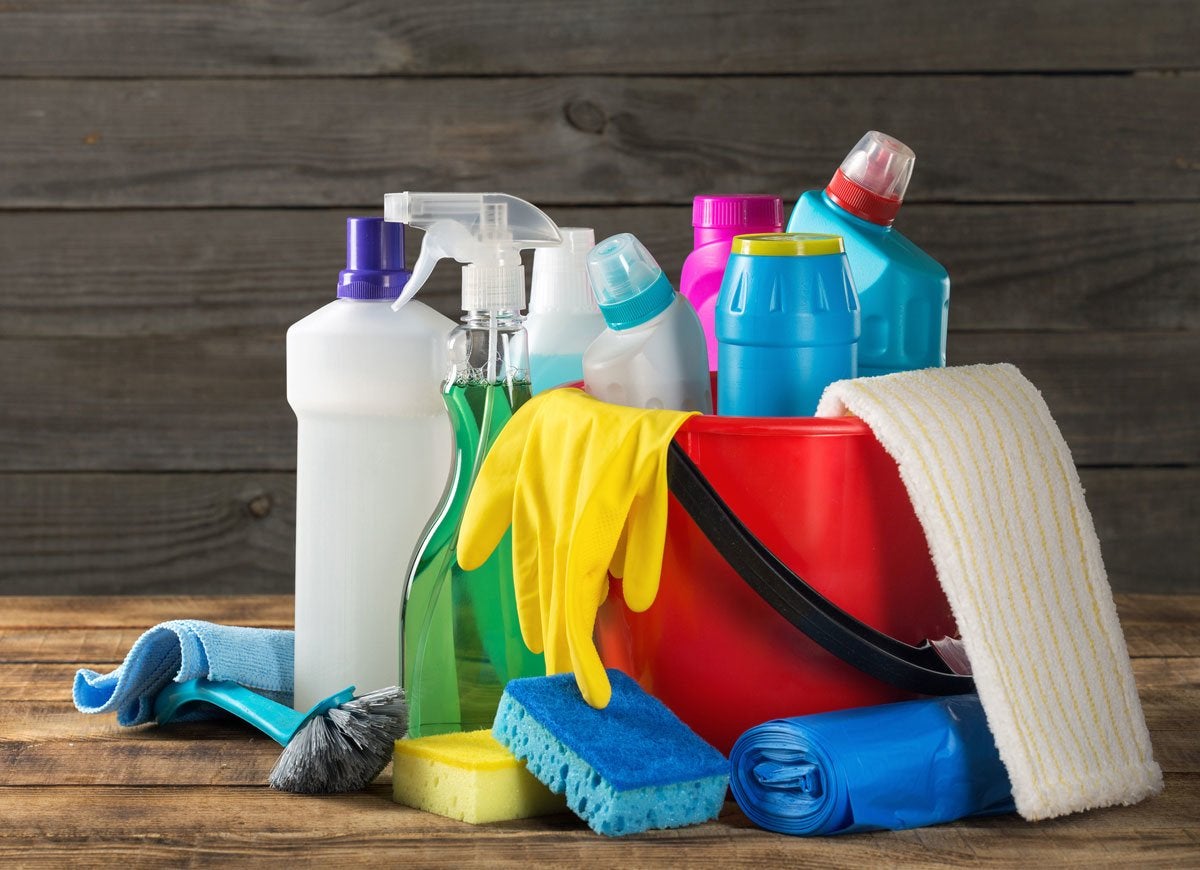
Does your pet enjoy licking furniture or rolling on the carpet? It could be ingesting or absorbing harmful cleaning products. Pet owners should consider using nontoxic alternatives, such as vinegar and baking soda, to clean pet-friendly areas of the home.
Petroleum Jelly
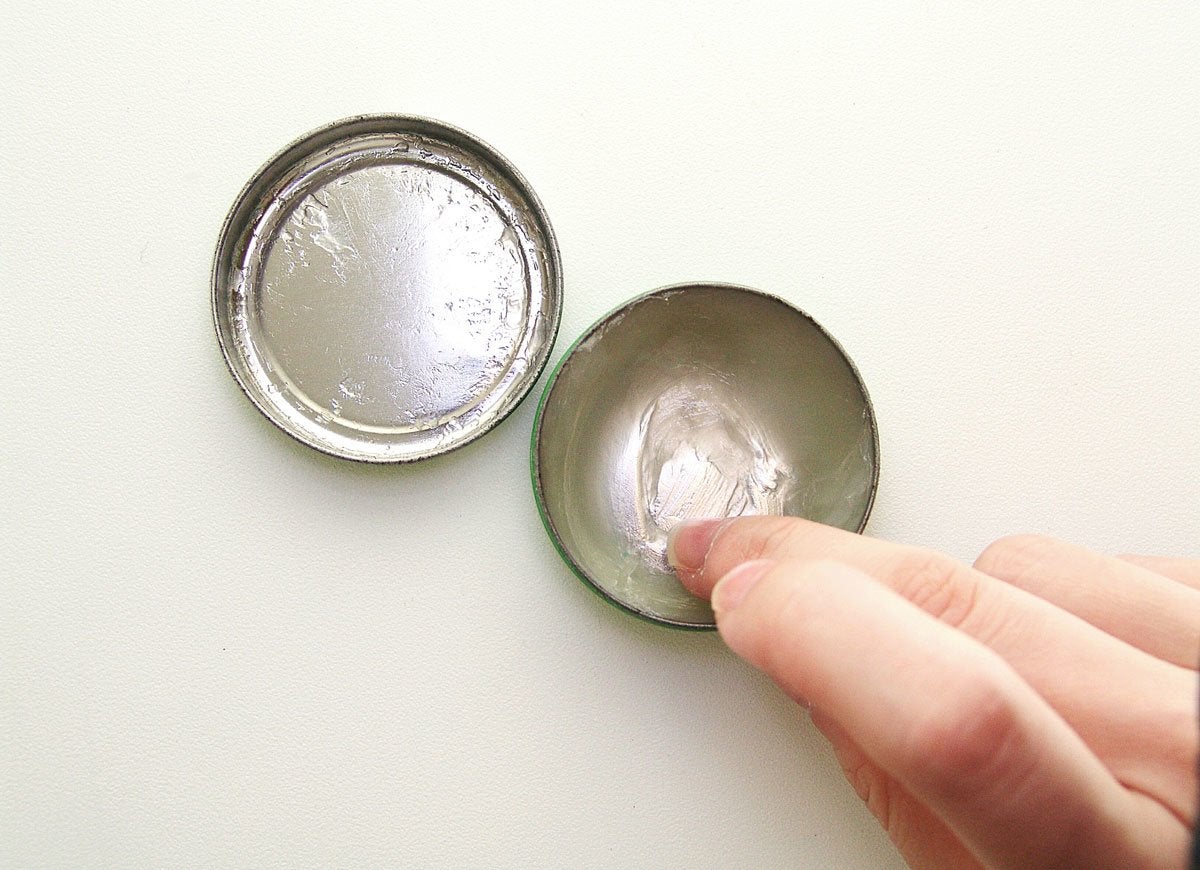
Thanks to its laxative properties, petroleum jelly will cause intestinal issues if eaten by dogs and cats. Store all cosmetic products — including lotions, hand soaps, and makeup— in areas that your furry friends can’t reach.
Related: 14 Unusual Uses for Vaseline
Toilet Sanitizer
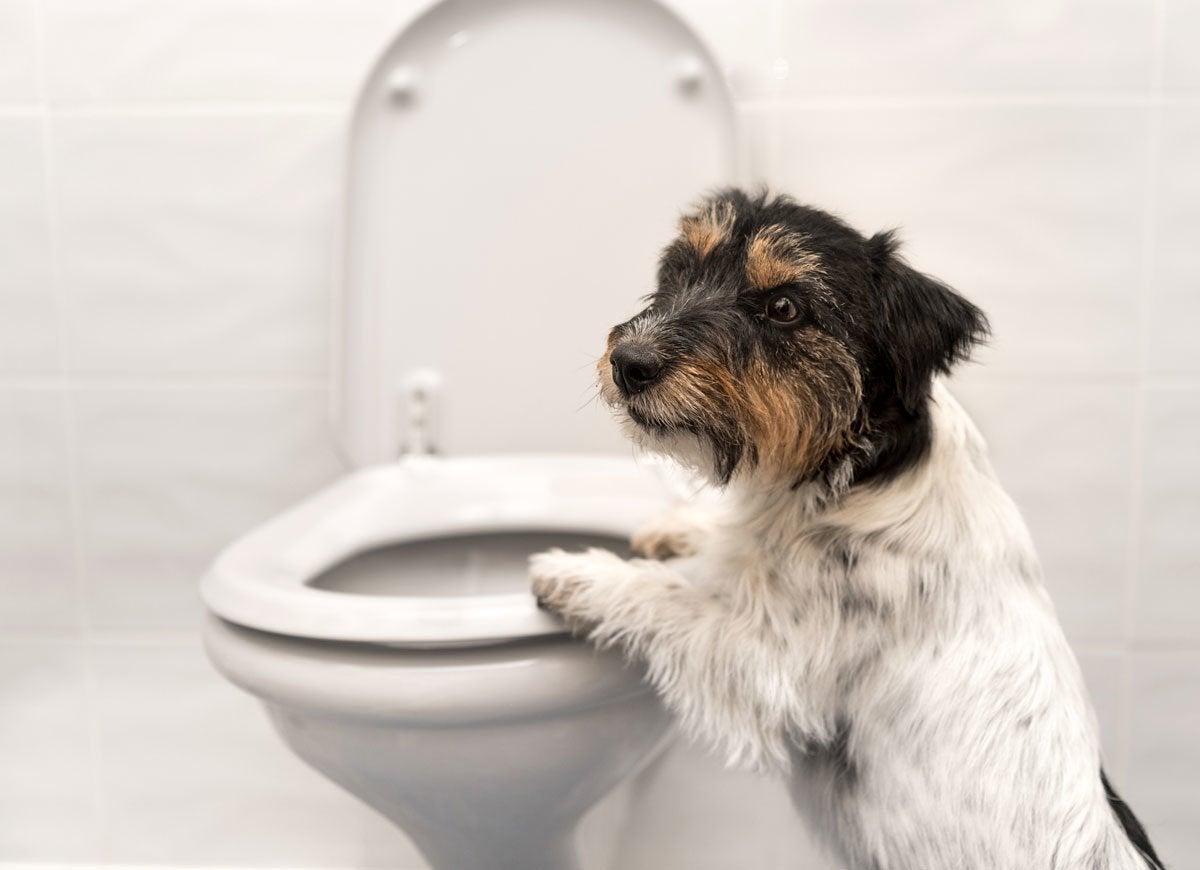
Keep the toilet lid down at all times. Germs and bacteria lurk in the bowl, and toilet cleaning chemicals like bleach can poison animals. If your rambunctious puppy enjoys slurping toilet water, purchase a pet fountain as a healthier alternative.
Human Medications
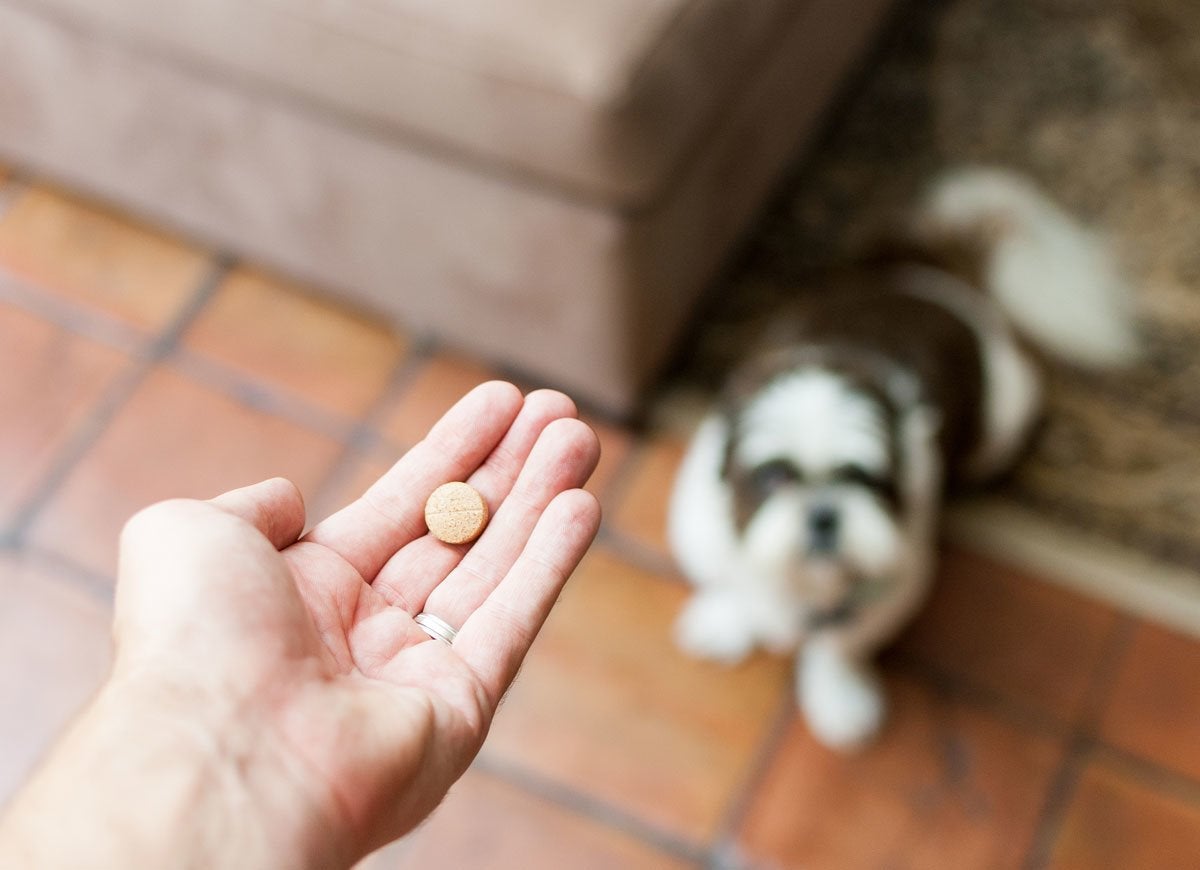
Never give your pet any human medications since they can cause vomiting, diarrhea, kidney failure, liver damage, intestinal ulcers, lowered heart rate, and bleeding in the stomach, among other issues. Medications that are particularly harmful include Adderall, aspirin, ibuprofen, naproxen, Kaopectate, Pepto-Bismol, and decongestants.
Related: Boring Bathroom? 7 Fixes for an Old Medicine Cabinet
Mosquito Repellent
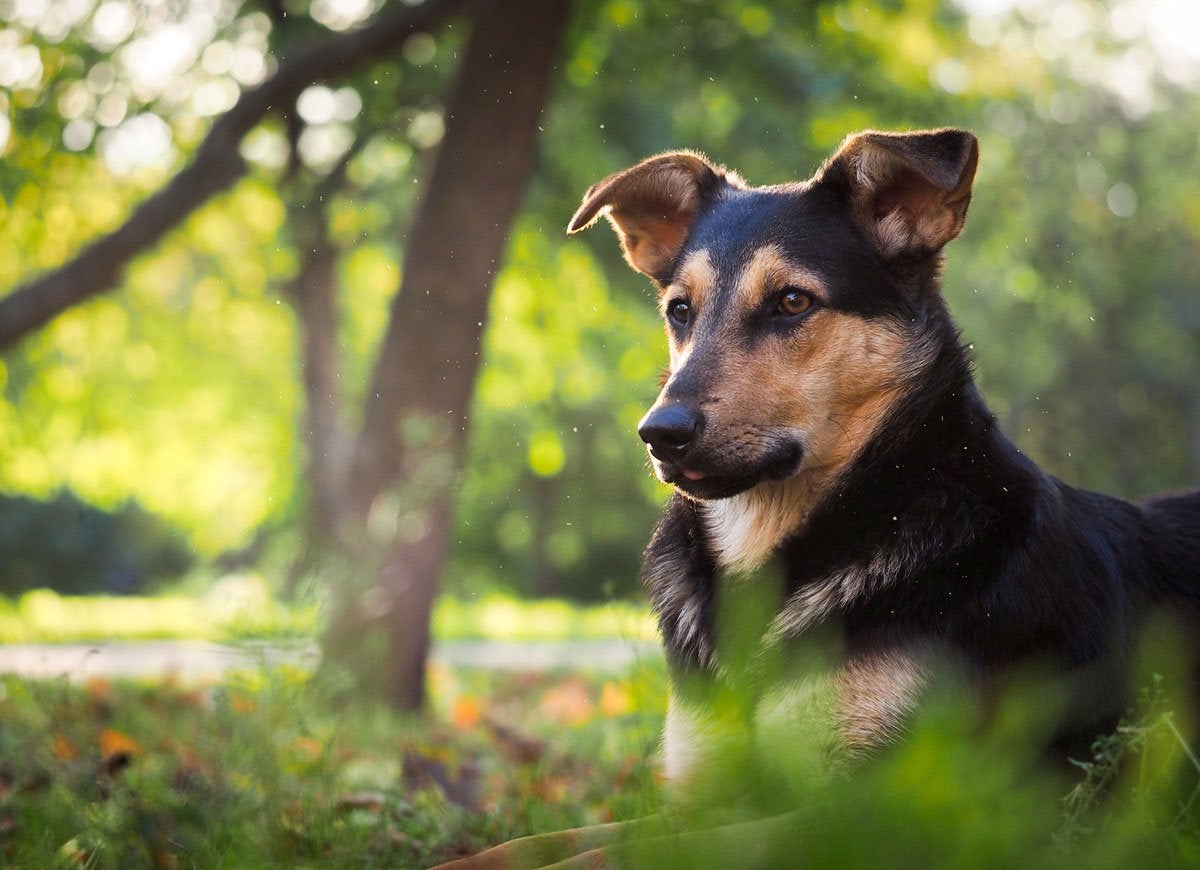
Planning an outdoor adventure? Instead of applying DEET products to your pet, ask the vet for pet-safe mosquito protection that won’t harm Fido when he inevitably licks the product off his fur.
Nicotine
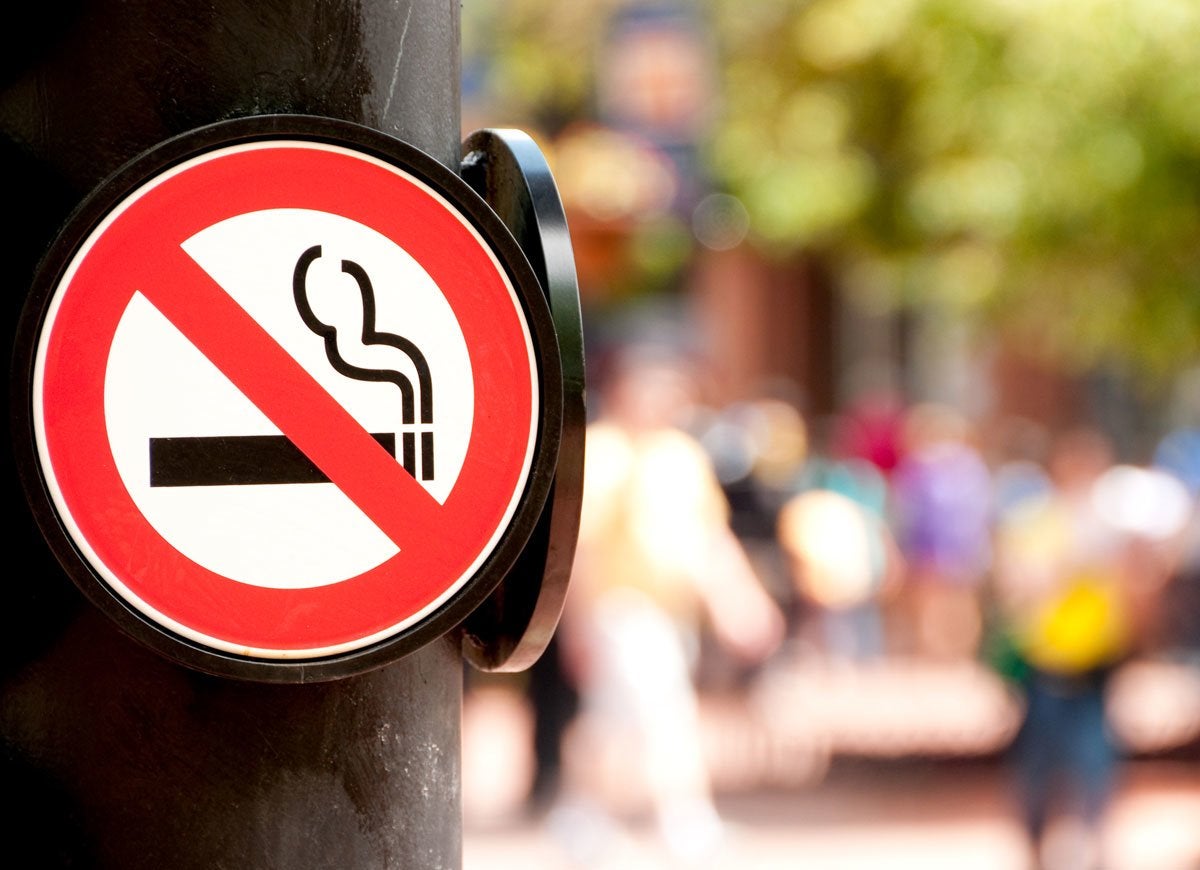
Humans aren’t the only ones negatively impacted by cigarettes. Nicotine can cause sickness or death if eaten by pets, and secondhand smoke harms pets just as much as people.
Human Food
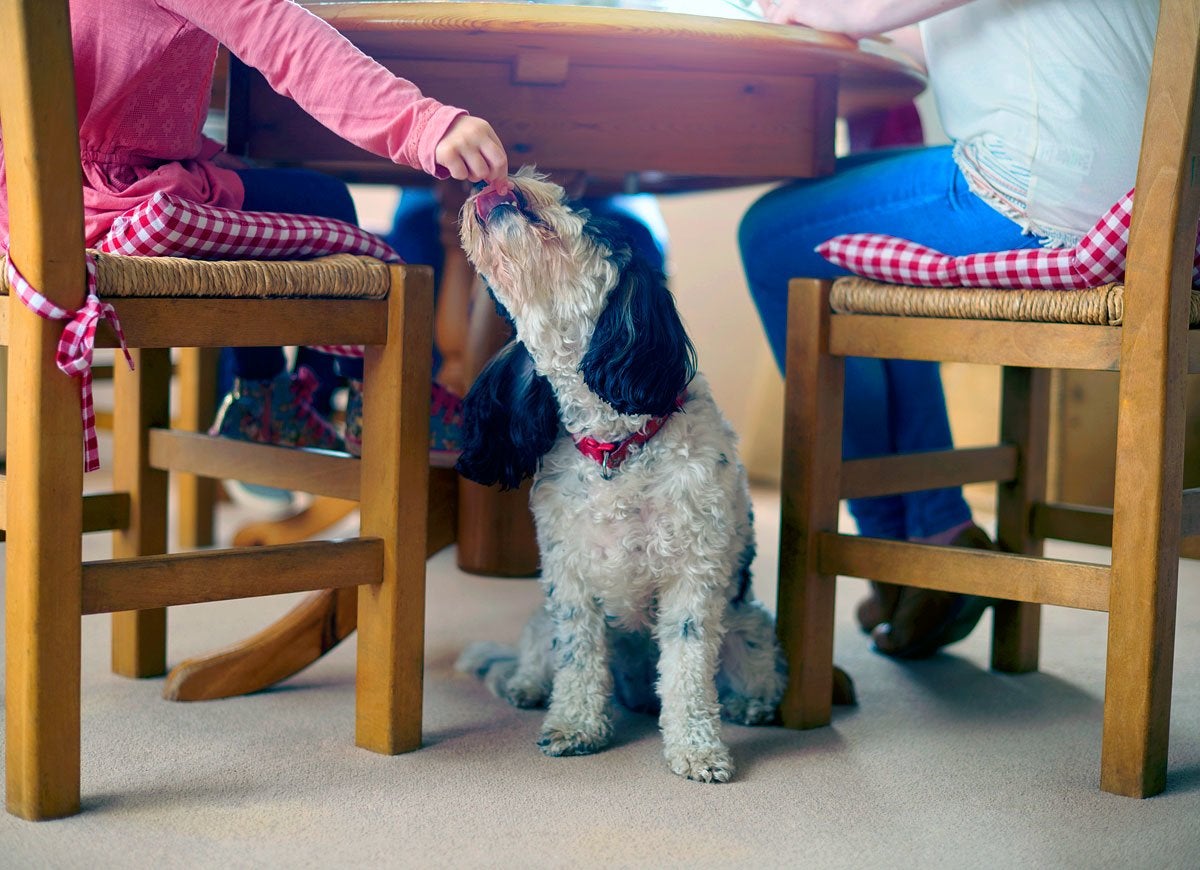
Any savvy pet owner knows that certain human foods can poison their pets. The danger list for both dogs and cats includes grapes, raisins, avocados, gum and breath mints containing xylitol, macadamia nuts, onions, garlic, chives, alcohol, coffee, and chocolate.
Indoor and Outdoor Plants
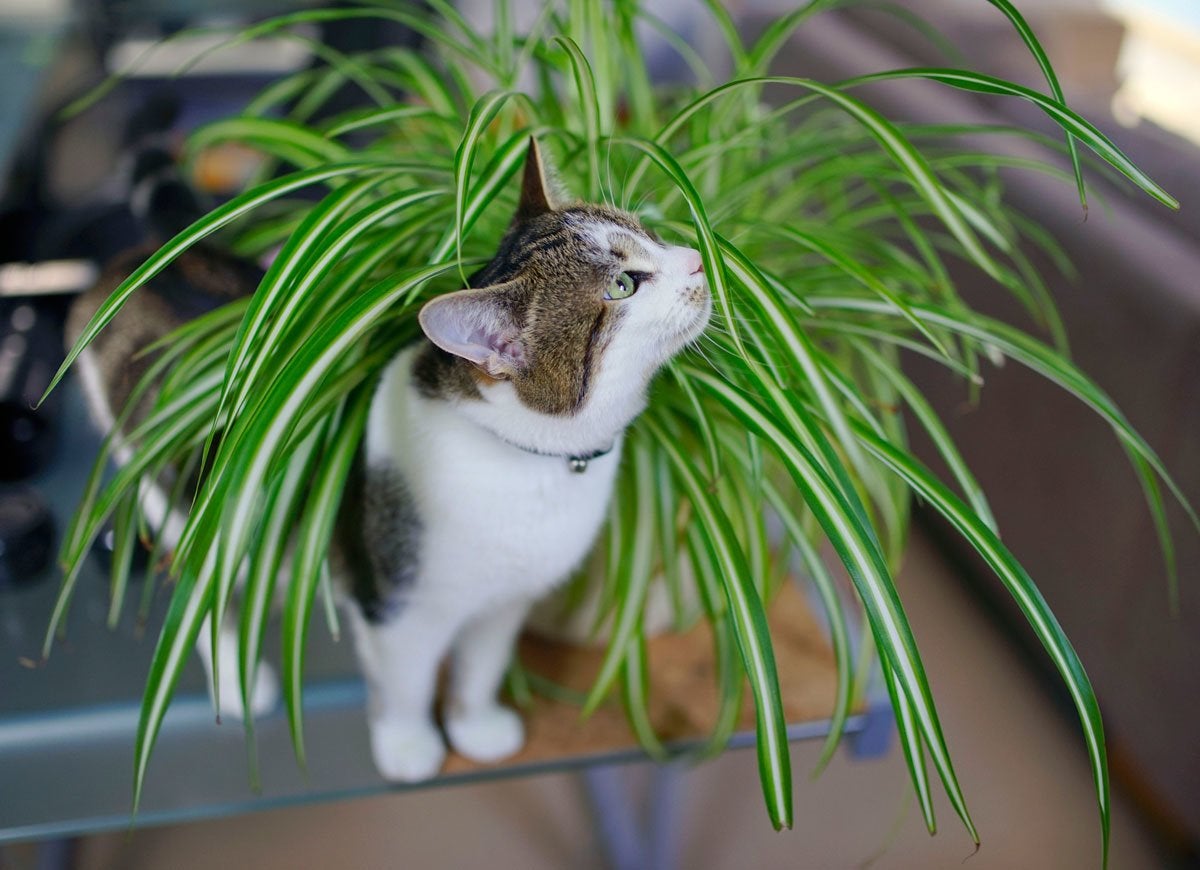
The Cornell University College of Veterinary Medicine states that tulips, foxglove, philodendron, poinsettias, and lilies cause feline poisoning. Symptoms include sluggishness, seizures, vomiting, diarrhea, drooling, and more. For a complete list of toxic and nontoxic plants, check out the ASPCA’s comprehensive database.
Cocoa Mulch and Fertilizers
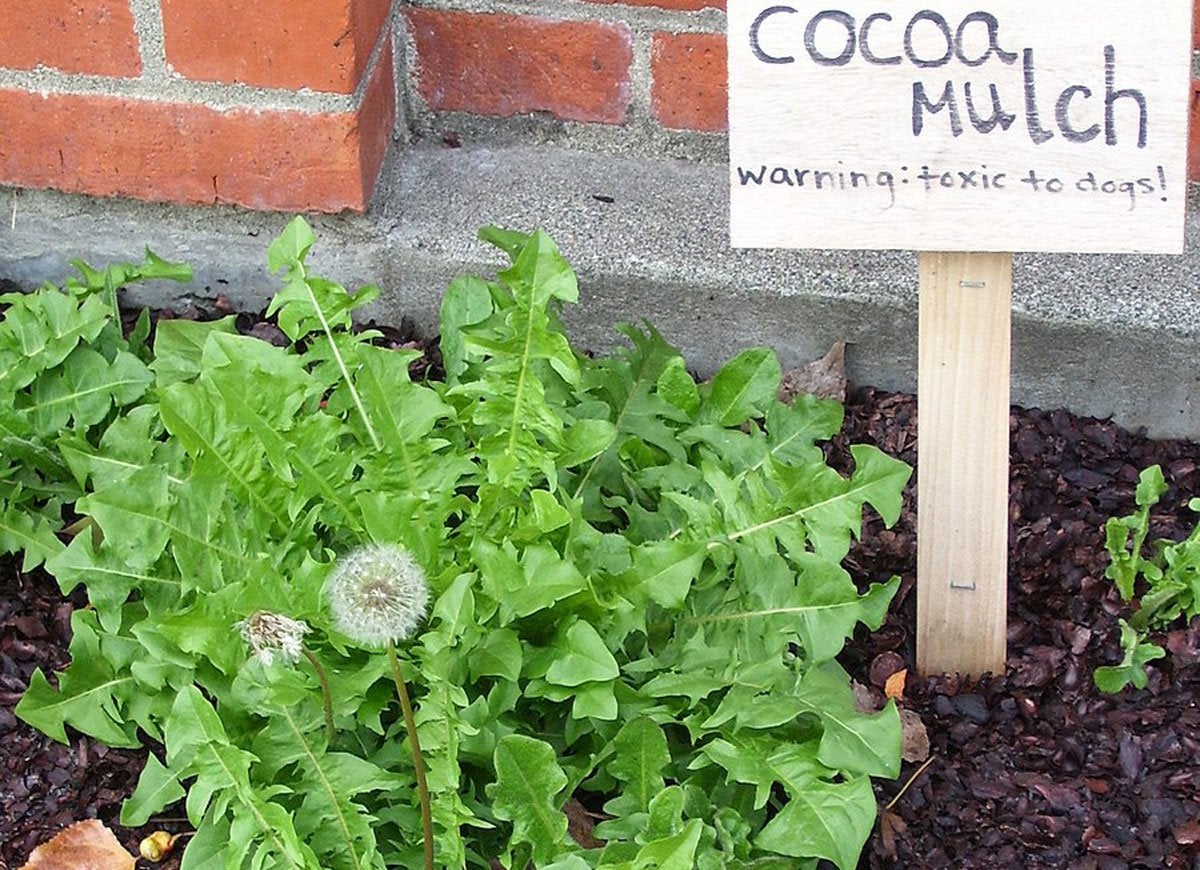
Wikimedia Commons via Leslie Seaton
Thanks to its pretty appearance and delicious smell, many gardeners enjoy using cocoa mulch in their landscaping—but pet owners should avoid it or risk poisoning their animals. Rely on pet-safe fertilizer options, such as manure, compost, blood meal, and fish emulsion, instead.
Related: 19 “Zero Dollar” Garden Hacks
Pest Chemicals and Insecticides
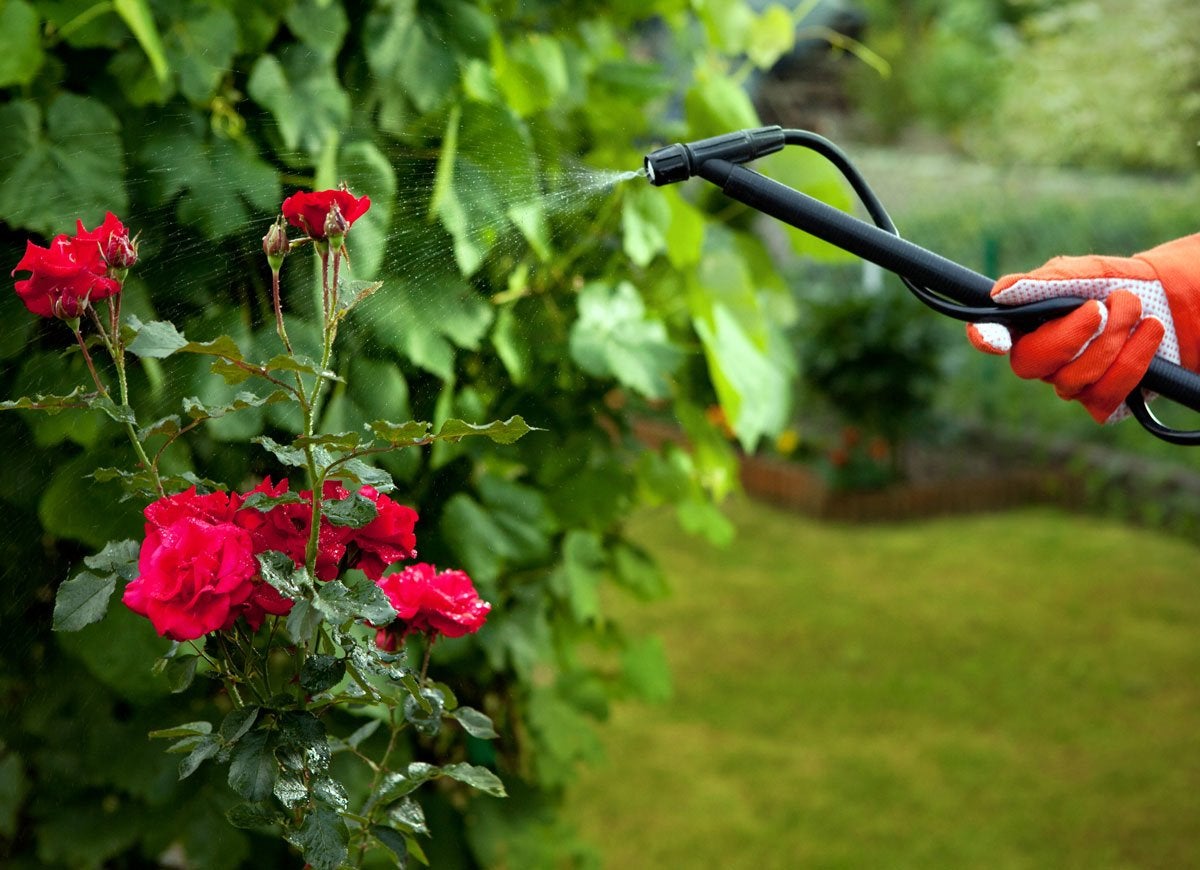
Chemicals designed to kill insects and rodents can also kill pets if ingested in large quantities. Always cover birdcages and fishbowls when spraying insecticide inside your home, and consider trying natural alternatives like cedar oil for outside areas.
Antifreeze
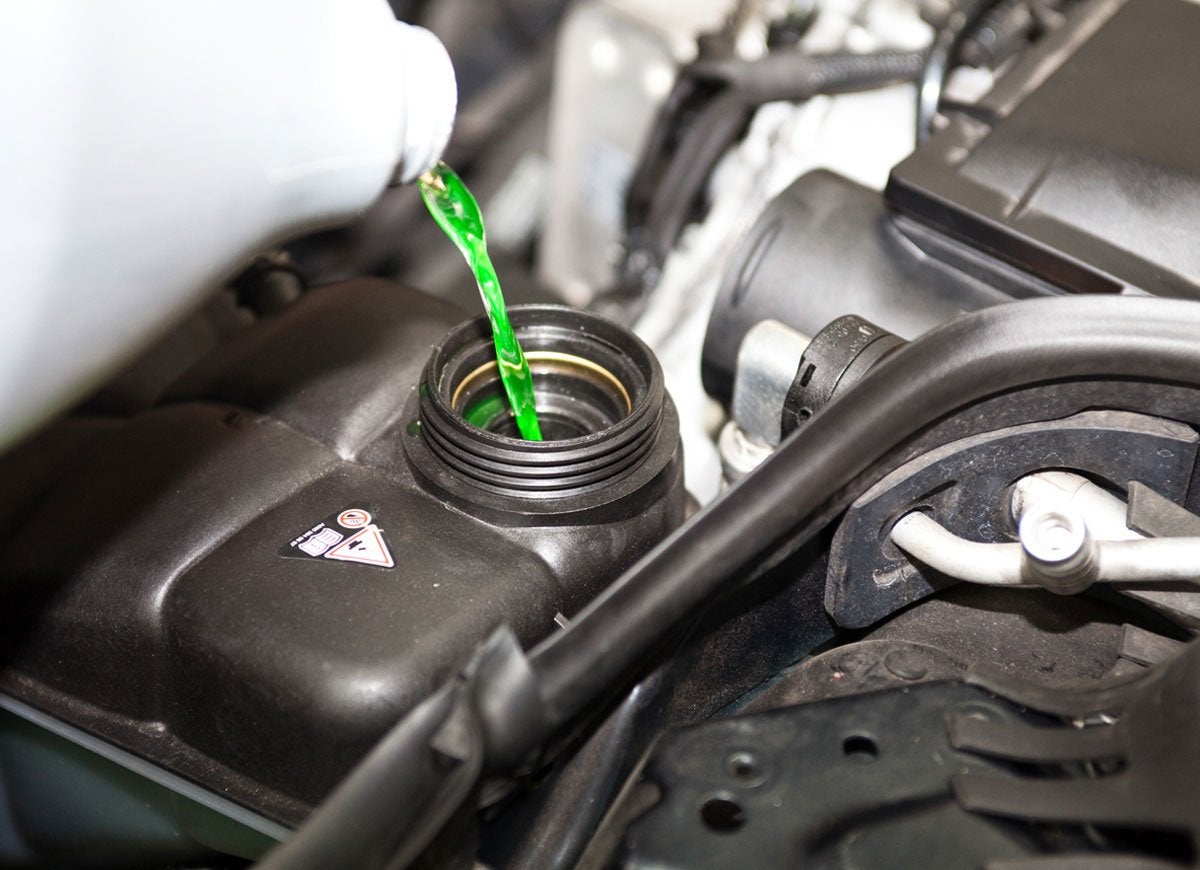
According to the Pet Poison Helpline, as little as a tablespoon of ethylene glycol, a chemical found in antifreeze, can cause kidney failure in dogs. Keep antifreeze away from pets, or use one containing propylene glycol when animals are around.
Related: 8 Easy Ways to Winter-Proof Your Car
Lead Paint
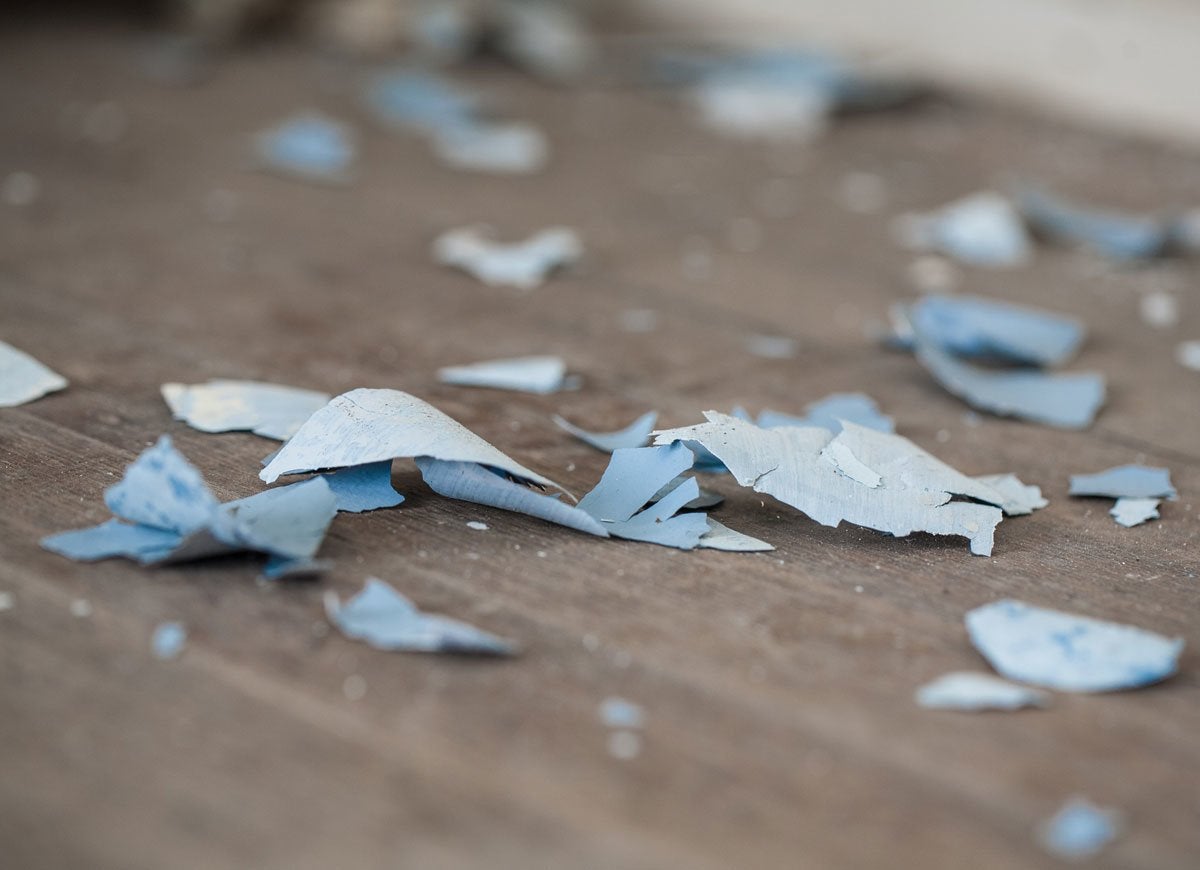
Homes built before 1978 may contain lead paint. Any animal who eats this poisonous substance may experience vomiting, lethargy, abdominal pain, blindness, hysteria, seizures, and other gruesome symptoms. Get your home tested for lead paint if you’re unsure, and take necessary steps for removal—after all, lead paint poisons humans too!
Batteries
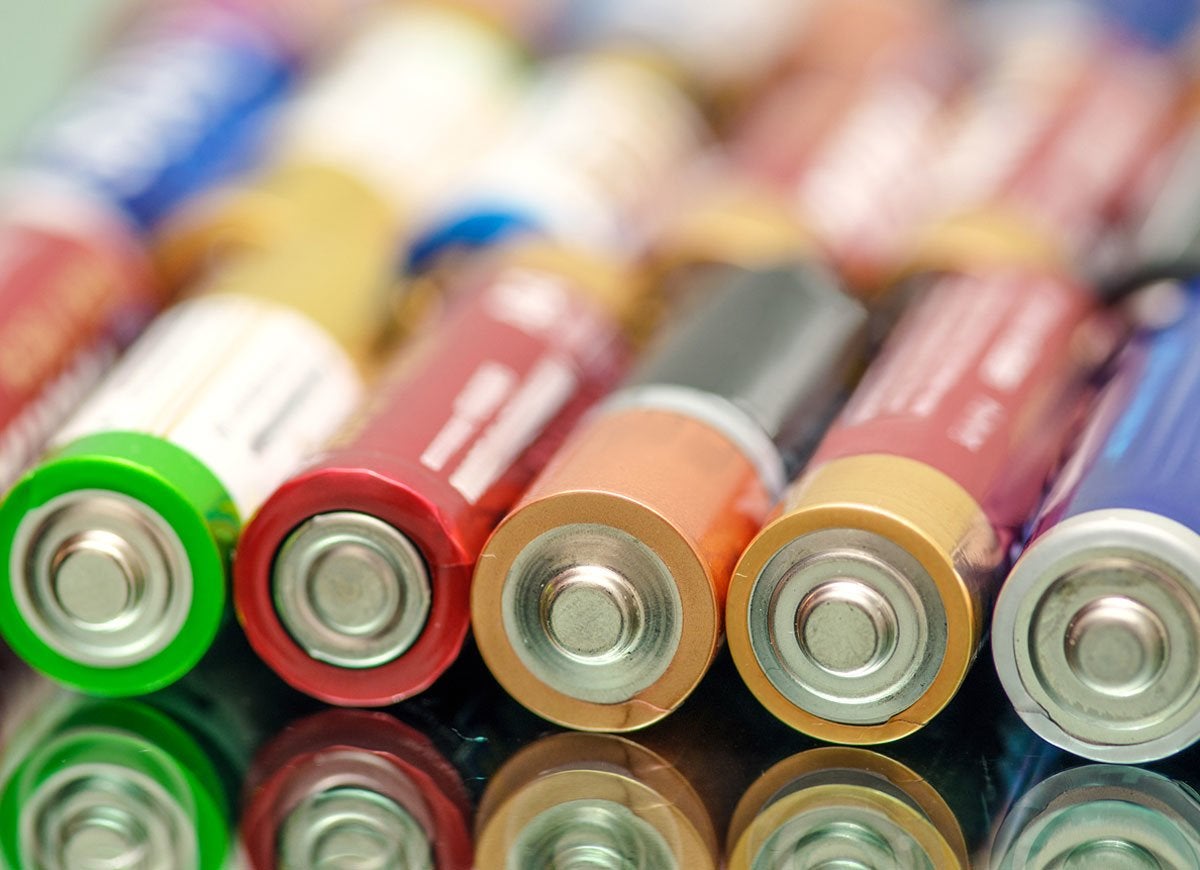
If your playful pup or curious cat chews on batteries, alkaline or acidic compounds get released, and the animal may start drooling, pawing at the mouth, and vomiting. Rinse your pet’s mouth out thoroughly after exposure to batteries, and contact your vet immediately.
Holiday Decorations
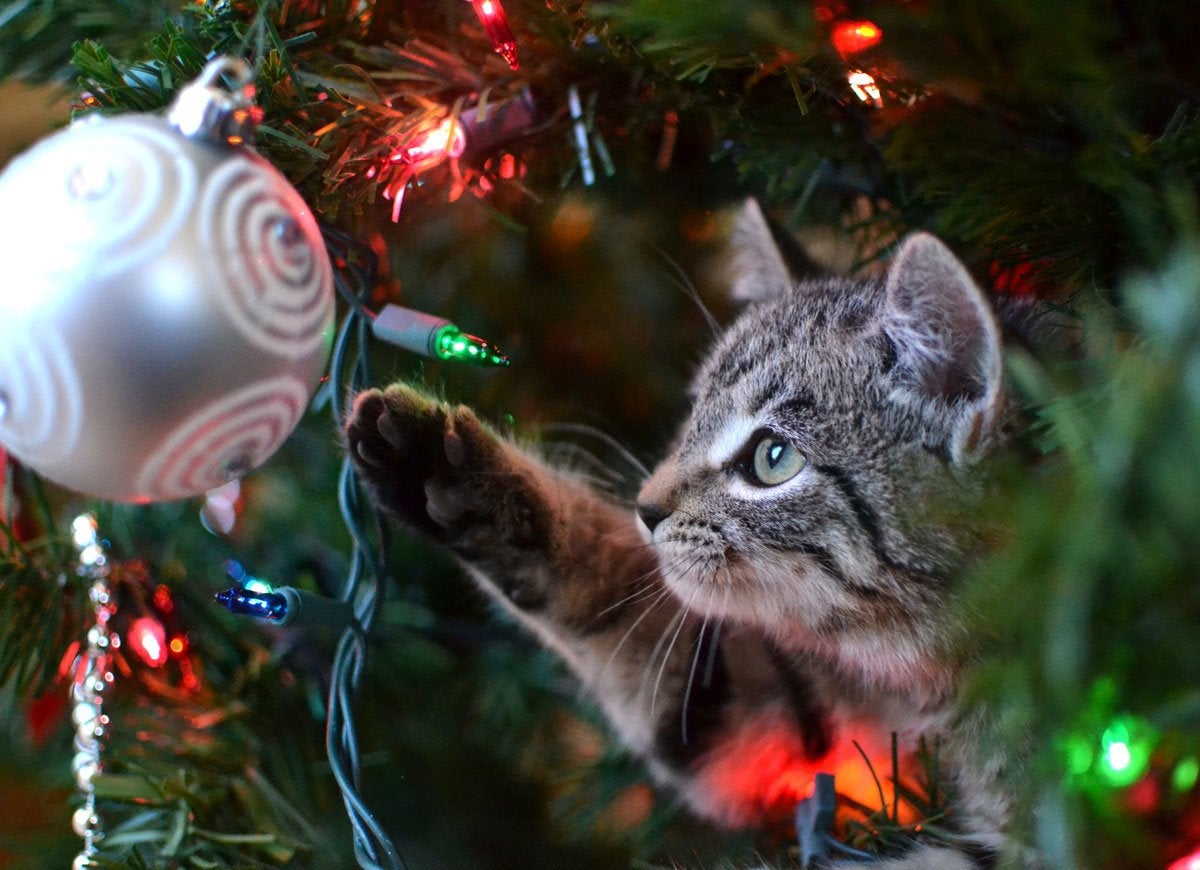
Cats and dogs enjoy playing with shiny things, and holiday decorations are no exception. Tinsel, ribbons, fairy lights, and stray electric cords, however, are choking hazards, and they can damage the digestive system if eaten. Always invest in cord protectors, and make sure your kids know that decorations aren’t pet toys.
Pennies
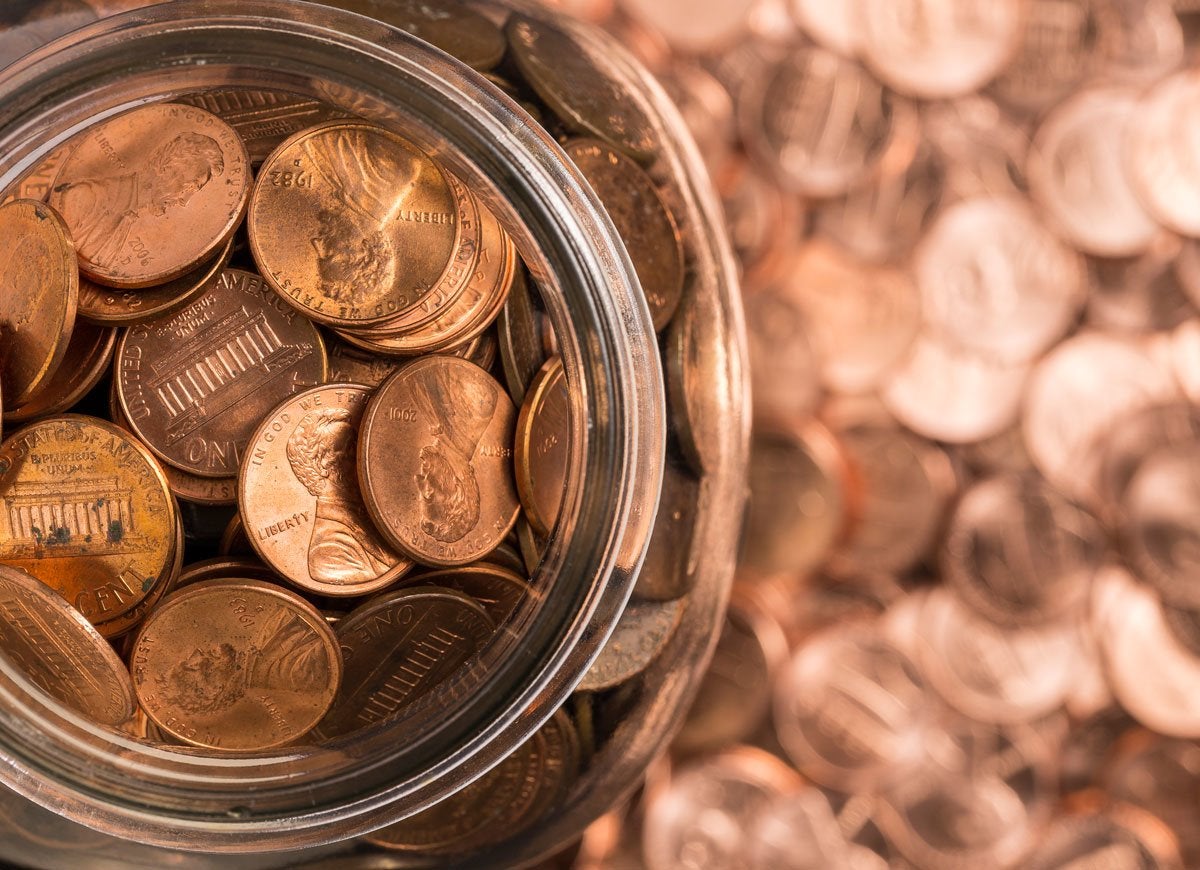
Pets can choke on any small coin, but pennies minted after 1983 also contain zinc. The toxic heavy metal, which is absorbed quickly by household animals, can cause a fatal blood disorder in dogs.
Related: Redecorate Your Home for—and with—Pennies
Office Supplies
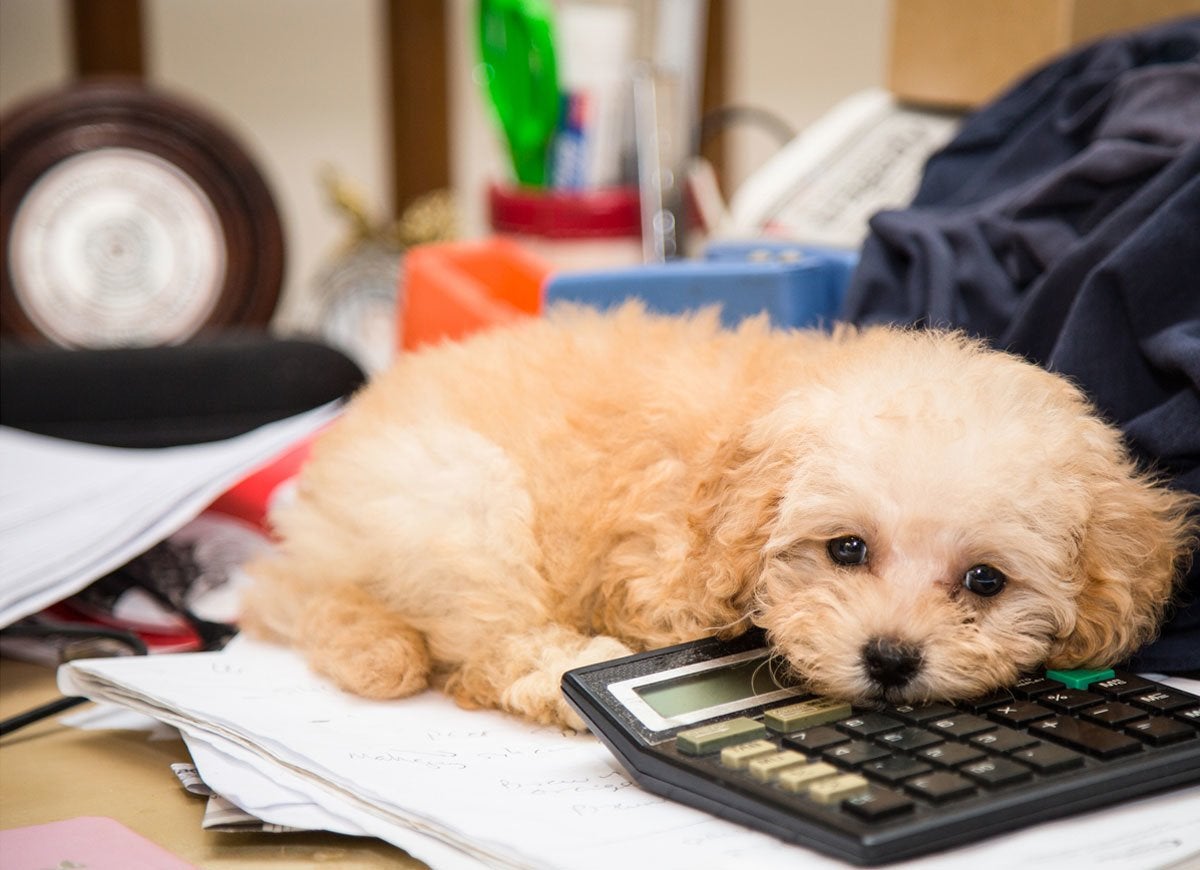
Rubber bands, plastic bags, toothpicks, and paper clips can easily become lodged in your pet’s throat. Store all of these supplies out of reach of pets, and train animals not to snoop in desk drawers.
Pet Protection
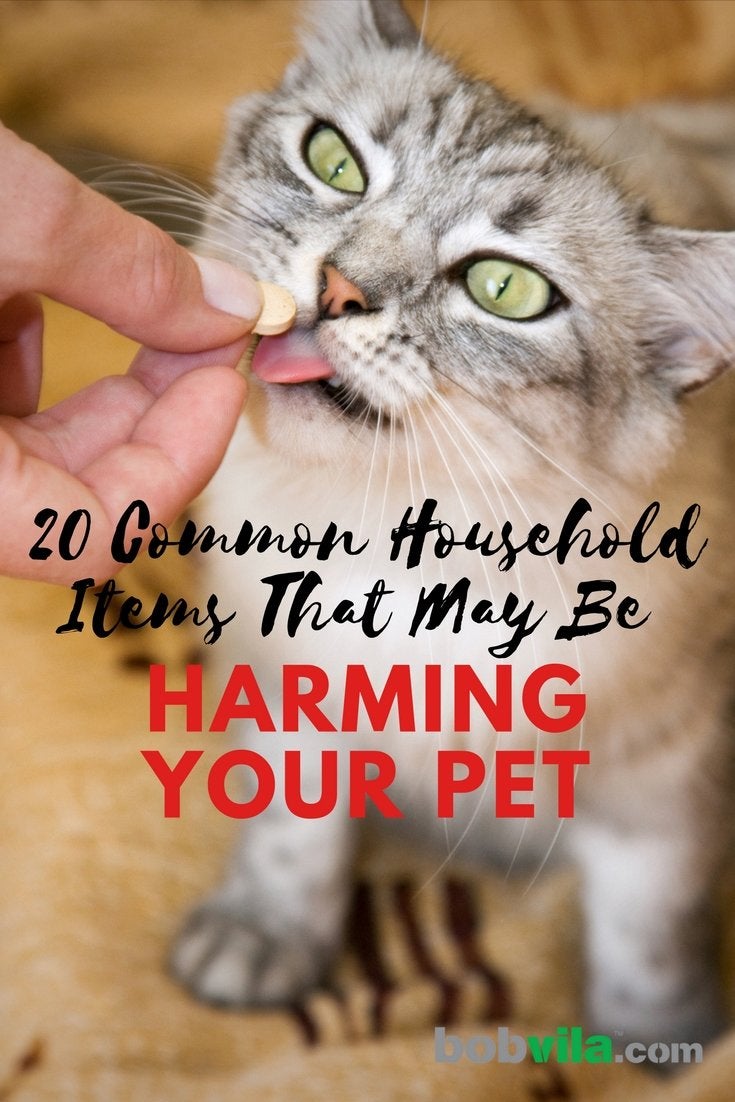
Take a moment to go around the house to either get rid of these items or to put them in places where your beloved pet can’t reach. You can’t have your eyes on your furry friend at all times, but you can take the right measures to make sure they don’t get into anything that will hurt them or make them sick.
